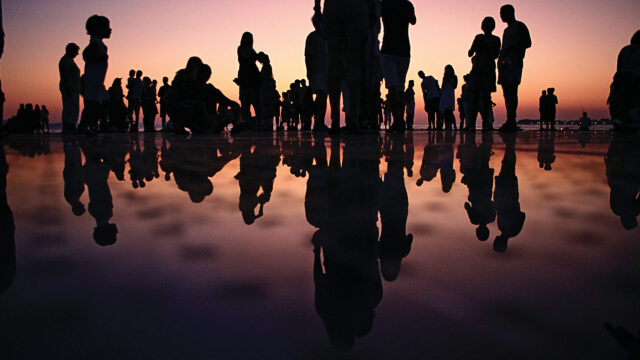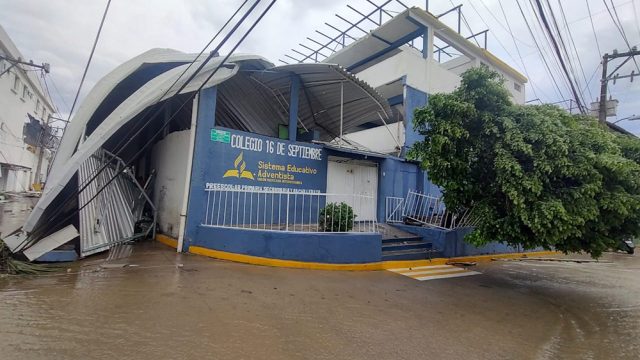Lisbon Central Seventh-day Adventist Church turned 100 years in 2024.

On Saturday, November 23, the Central Seventh-day Adventist Church in Lisbon, Portugal, was packed with members and guests celebrating a unique event: the centenary of the congregation. Built in 1924, the building, designed by the renowned architect Porfírio Pardal Monteiro, is a historical and architectural landmark in the Portuguese capital and a testimony to the artistic beauty of its time, local church leaders said.
Despite being a candidate for the prestigious Valmor Architecture Prize, the building was not accepted for the competition because of its religious function. Still, the temple stands out as an architectural jewel, with features that were considered innovative at the time, such as the descending audience seating that improves the view of the pulpit and the decoration that symbolically refers to the spiritual connection with God.
José Pardal Monteiro, the architect’s great-nephew, was present at the celebration and made a point of highlighting his predecessor’s artistic and functional vision. “This temple is proof of the genius of Porfírio Pardal Monteiro, who managed to combine aesthetic beauty with modern functionality. The unique features of this building, such as the inclined audience [seats], still inspire and serve as an example for many contemporary projects,” he said.
The centerpiece of the celebration was a commemorative concert, in which an inter-religious choir—made up of members of the local church, other churches in the region, and guest singers and musicians—presented attendees with a selection of religious music, under the conduction of Gerson Coelho. The voice of narrator Josefa Alcobia brought moments of reflection, as she evoked the history of the temple and its relevance in the cultural and spiritual context of Lisbon.

“Every note and every word of this concert serves to remind us that this space is more than a building: it is a meeting place between people and God,” highlighted local church pastor António Amorim.
Another notable moment was the speech by José Eduardo Vera Jardim, president of the Portuguese Religious Freedom Commission, who praised the historical relevance of the Adventist church building and the influence of the community in the city and the country. He also highlighted the need for local authorities to comply with the Religious Freedom Act, which recognizes the importance of finding public spaces for the construction of centers of worship for various religious communities.
“The existence of a space like this demonstrates our society’s commitment to religious diversity and the wealth that comes from it,” Vera Jardim said. “It is essential that we continue to ensure that all communities have the space they need to live their faith.” He also praised the public work of the Seventh-day Adventist Church, recognizing its role in defending religious freedom and supporting local communities.

Amorim highlighted the role of the Adventist congregation in serving the Adventist Church and the community, emphasizing the role of the pioneers in its construction and expressing that it is open to all those seeking an encounter with God. “This space was created with the intention of bringing people closer to God and providing an environment of peace, reflection, praise, and communion. It is a place with open arms, as the cross exemplifies, where everyone is welcome,” Amorim said.
To mark the centenary, the National Postal Service launched a commemorative postcard, which celebrates the history and impact of the Adventist church building in Lisbon. Those who attended the celebratory event signed a special copy of the postcard.
According to regional Adventist leaders, the centennial celebration was more than a look into the past. “It was a call to action on how the Adventist Church can influence society by its presence, not just by its buildings but by bringing God’s presence into the lives of people,” they said. “This celebration will be remembered as a celebration of faith, gratitude, action, art, and freedom.”
The original version of this story was posted on the Portuguese Union news site.








